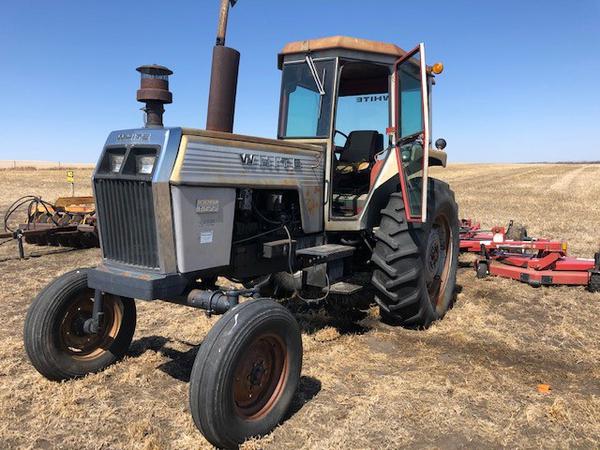The COVID-19 crisis left farm machinery companies examining how to protect staff from the virus and remain operational for producers.
“That Thursday we met as senior managers and laid out a game plan that would keep our payroll and IT systems up. Sending folks home who could be. Then rotating shifts to spread the risk for those needed to come in,” he said.

“You need good human resources plans to keep everyone safe and at the same time working,” he said. “I know larger farms are having to do the same,” said Wood about some of the company’s customers.
From the beginning of the company’s process to adapt to social distancing, it decided to follow all government health guidelines. “We just had to find ways to make it work at each dealership. Rather than impose one rule, because each store is different, we let the local staff have a lot of autonomy,” he said.
“If putting a few pails of oil out in front of the parts counter worked to keep farmers at a safe distance, hey, that was the solution. It had to be appropriate for the location,” said Wood. With 750 staff, the company remained flexible how each dealership achieved physical distancing.
“We stopped all inter-branch travel. We didn’t need any of us infecting the separate units. That, in fact, was one of our advantages as a business. We are spread out, like farmers,” he said. The company also decided not to lock its doors and require producers to make appointments or call from the parking lot. “We made sure to have someone at a desk near the door to manage customers as they come in and remind them of social distancing. It can be easy to forget,” said Wood.
Using virtual meetings might be one tool that Wood’s company will continue to use over time. “We are using a lot of ZOOM (video) meetings. We had a virtual conference call meeting with our investors for the quarterly last week. It was good. And they work for training,” he said.
The company has shifted its summer combine clinics to virtual productions that will involve some recorded video presentations that will be presented live so that producers can ask questions of the experts in real time. While new machinery sales are down, that was the trend before the pandemic. Farmer sentiment was also depressed by overwintered crops, the protester-driven rail blockades that slowed early spring grain deliveries and the ongoing Chinese trade issues related to canola.
“But the crop goes in the ground, no matter what,” said Wood. “There is a lot maintenance going on as a result. And this year we are having two harvest seasons (due to the overwintered crop), so that has meant more parts sales for combines,” he said.
“We’re learning a lot from this and investing in it.”





